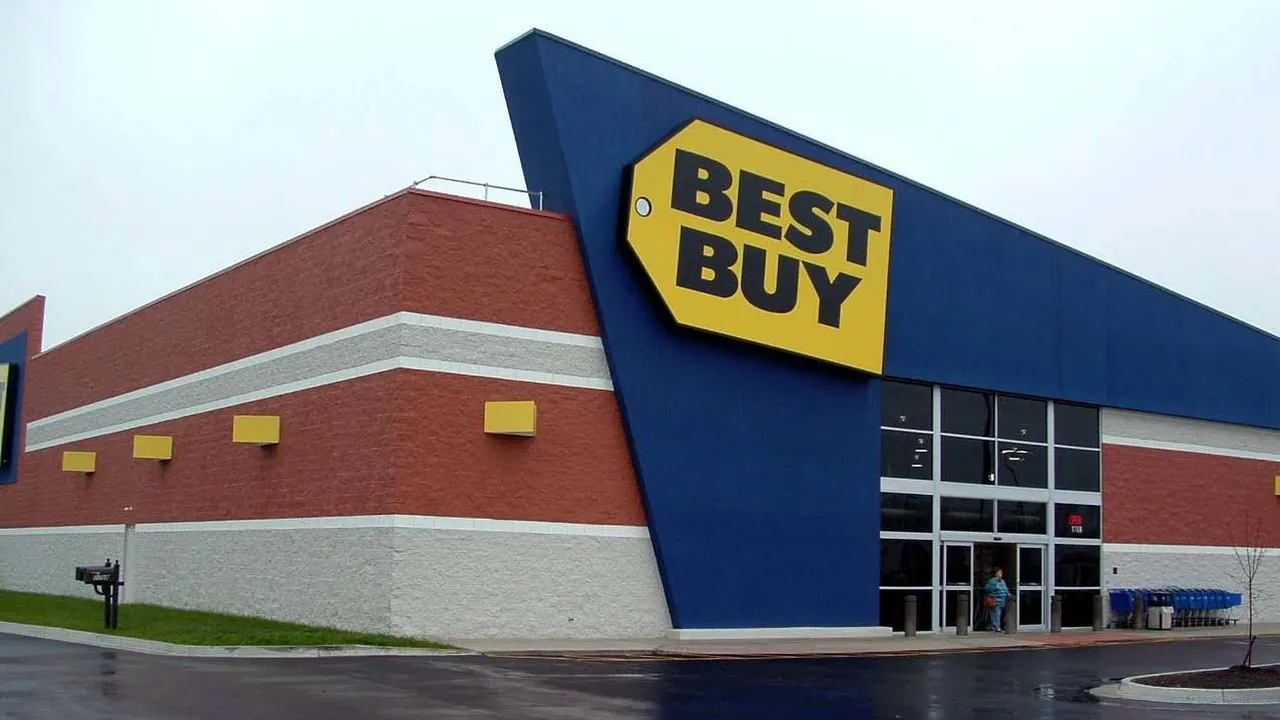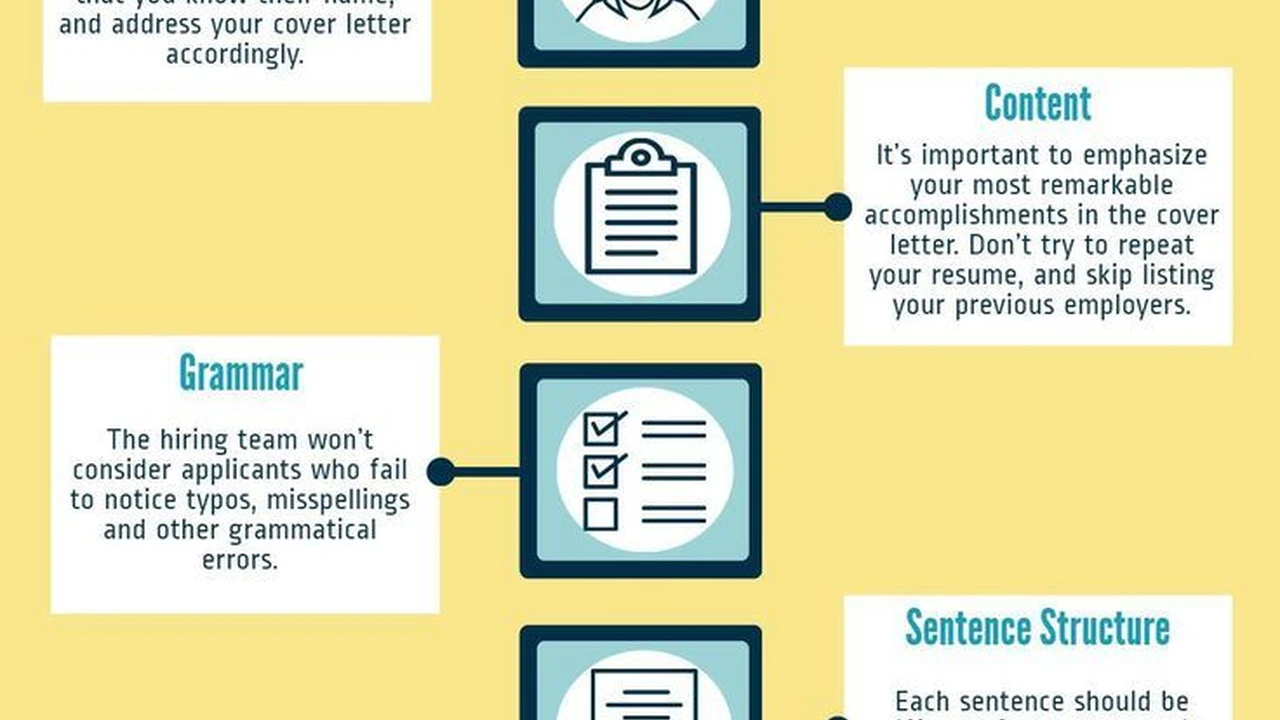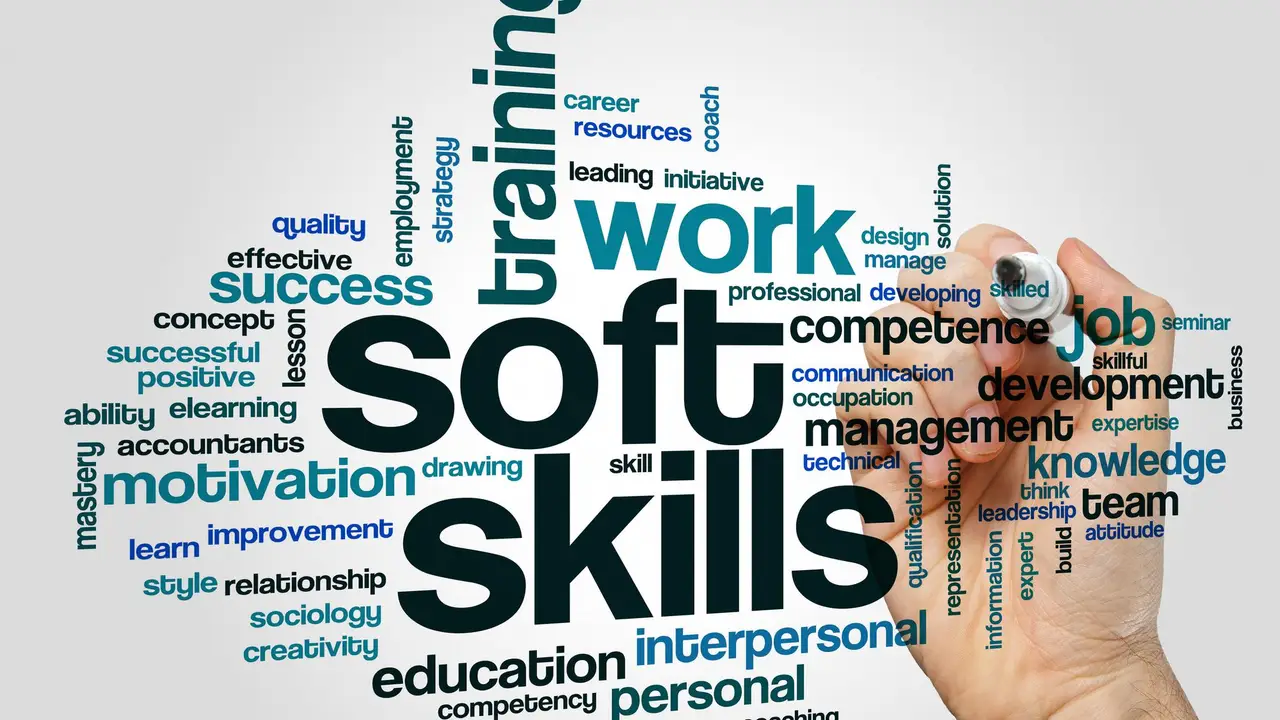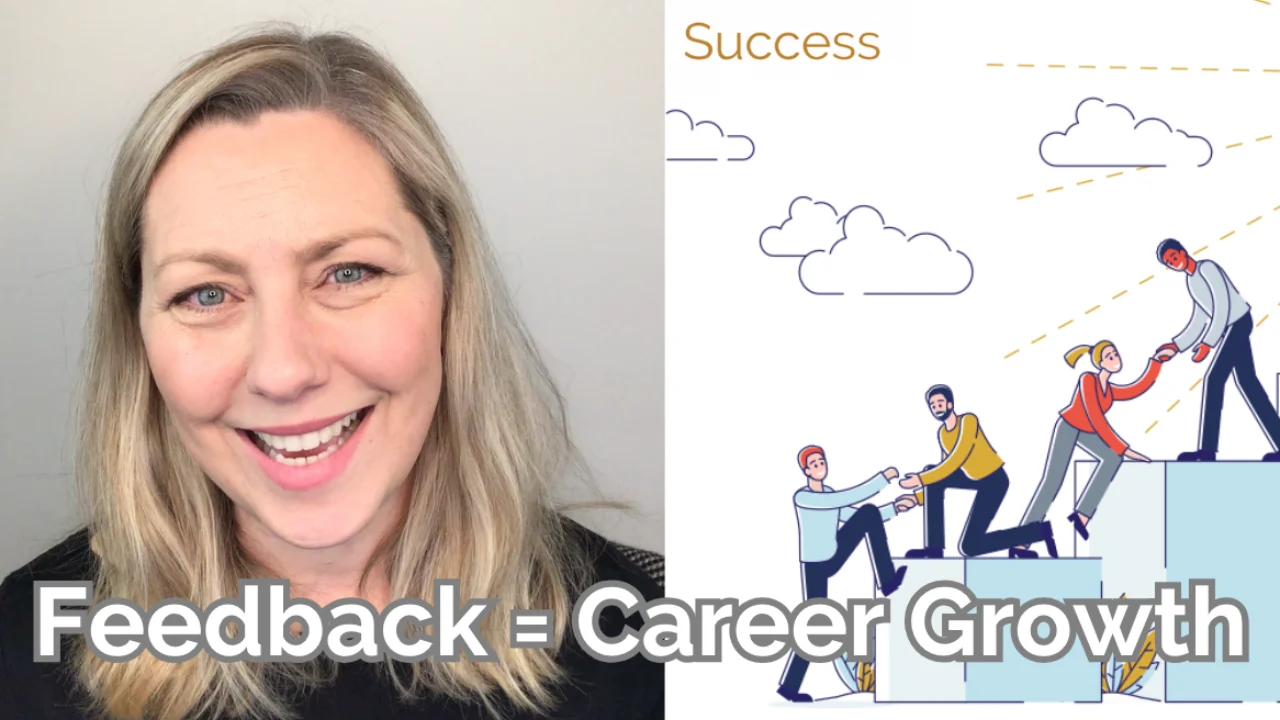Comparing Mentorship vs Sponsorship for Career Boost
Understand the differences and benefits of mentorship versus sponsorship in propelling your career forward.
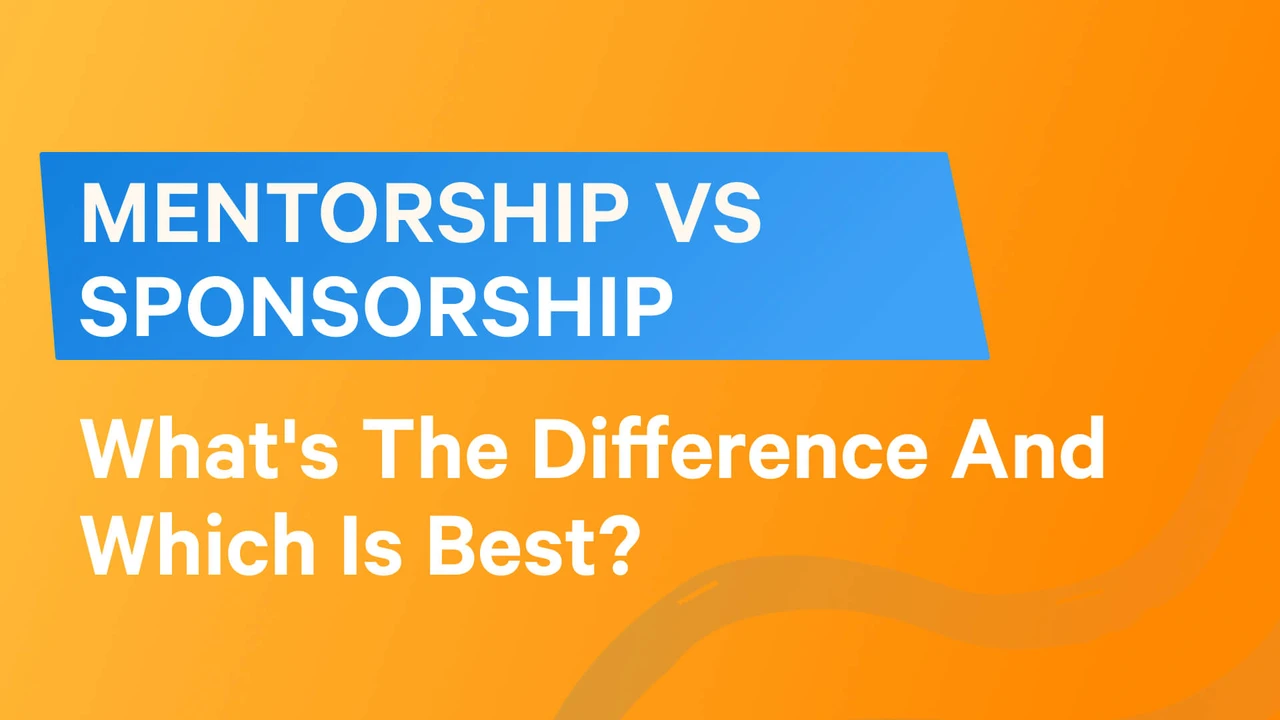
Comparing Mentorship vs Sponsorship for Career Boost
Understanding Mentorship and Sponsorship in Career Development
Hey there, career accelerator! Ever wondered what's the real deal with mentorship and sponsorship? You hear these terms thrown around a lot, especially when people talk about climbing the career ladder. But are they the same? Not quite. While both are super valuable for your professional journey, they play different roles and offer distinct advantages. Let's dive deep into what makes each unique and how you can leverage them to seriously boost your career, especially as you're looking to make big moves in Q4 and beyond.
Think of it this way: a mentor is someone who guides you, offers advice, shares their experiences, and helps you navigate challenges. They're like a wise elder who's been there, done that, and can show you the ropes. A sponsor, on the other hand, is more of an advocate. They're someone with influence who actively champions your career, speaks up for you in important rooms, and creates opportunities you might not even know existed. They're putting their own reputation on the line for you, which is a huge deal.
The Core Differences Mentorship vs Sponsorship Explained
Let's break down the fundamental differences. It's not just semantics; it's about the nature of the relationship and the kind of support you receive.
Mentorship Your Guide and Advisor for Professional Growth
A mentor is typically someone more experienced than you, often in your field or a related one, who provides guidance and support. The relationship is usually informal and built on trust and mutual respect. Here's what you can expect from a mentor:
- Advice and Insights: They'll share their knowledge, offer perspectives on career decisions, and help you understand industry nuances.
- Skill Development: They can help you identify areas for improvement and suggest ways to develop new skills.
- Problem Solving: When you hit a roadblock, a mentor can help you brainstorm solutions and navigate difficult situations.
- Networking Tips: While they might not directly introduce you to everyone, they can advise you on how to build your own network.
- Emotional Support: Sometimes, you just need someone to listen and offer encouragement, and a mentor can be that person.
The beauty of mentorship is its flexibility. It can be a formal program within your company, or it can be an informal connection you build over time. The key is that the mentor is invested in your personal and professional development, without necessarily having a direct stake in your advancement within the organization.
Sponsorship Your Advocate and Opportunity Creator for Career Acceleration
Now, sponsorship is a whole different ball game. A sponsor is typically a senior leader with significant influence and power within an organization. They don't just advise you; they actively promote you. Here's what a sponsor does:
- Advocacy: They will speak positively about your abilities and potential to decision-makers, often when you're not in the room.
- Opportunity Creation: They might recommend you for promotions, high-profile projects, or leadership roles.
- Visibility: Sponsors increase your visibility within the organization, ensuring your work and potential are recognized by key stakeholders.
- Protection: They can sometimes shield you from political pitfalls or negative perceptions.
- Direct Introductions: Unlike mentors, sponsors are more likely to make direct introductions to their powerful network.
Sponsorship is often more transactional, though still built on trust. The sponsor sees potential in you and believes that investing in your career will also benefit the organization or their own goals. It's a high-stakes relationship, as the sponsor is putting their own credibility on the line for you.
Benefits of Mentorship and Sponsorship for Career Advancement
Both mentorship and sponsorship offer incredible benefits, but they contribute to your career advancement in distinct ways. Ideally, you'd have both at different stages of your career.
How Mentorship Fuels Your Personal and Professional Development
Mentorship is fantastic for foundational growth. It helps you:
- Gain Clarity: Understand your career goals and how to achieve them.
- Build Confidence: Receive encouragement and validation for your efforts.
- Learn from Experience: Avoid common pitfalls by learning from someone else's journey.
- Develop Soft Skills: Improve communication, leadership, and problem-solving skills through guidance.
- Expand Perspective: Get an outside view on your challenges and opportunities.
Think of mentorship as building a strong, resilient foundation for your career house. It's about personal growth, learning, and developing the skills and mindset you need to succeed.
How Sponsorship Accelerates Your Career Trajectory and Opportunities
Sponsorship, on the other hand, is about opening doors and accelerating your path. It helps you:
- Access Opportunities: Get considered for roles and projects you might not have known about or been able to access otherwise.
- Increase Visibility: Ensure your talent is seen by the right people at the right time.
- Overcome Barriers: A sponsor can help you navigate organizational politics and overcome obstacles to advancement.
- Gain Influence: Being sponsored by a senior leader can lend you credibility and influence.
- Faster Promotions: Sponsorship is often directly linked to faster career progression and higher-level roles.
Sponsorship is like having a powerful engine that propels your career house forward at a much faster pace. It's about strategic positioning and leveraging influence for tangible career gains.
Finding Your Mentors and Sponsors Practical Strategies and Tools
So, how do you go about finding these invaluable relationships? It's not always about asking someone directly, 'Will you be my mentor?' or 'Will you sponsor me?' It's often more organic, built on demonstrating your capabilities and building genuine connections.
Identifying Potential Mentors and Building Rapport
Finding a mentor often starts with identifying individuals you admire and whose career path resonates with you. Look for people who:
- Have experience in areas you want to grow in.
- Possess skills you want to develop.
- Are known for their integrity and willingness to help others.
- Are approachable and seem genuinely interested in developing talent.
Once you've identified potential mentors, start building rapport. This could involve:
- Informational Interviews: Ask if you can have 15-20 minutes of their time to learn about their career journey.
- Seeking Advice: Approach them with specific questions or challenges you're facing.
- Volunteering: Offer to help them on a project or initiative they're leading.
- Attending Events: Go to industry events or company functions where they might be present.
The relationship often evolves naturally. If they see your potential and commitment, they might offer to mentor you, or you can formally ask once a connection is established. Remember, it's about mutual benefit and respect.
Cultivating Sponsorship Relationships Demonstrating Value and Potential
Sponsorship is rarely something you ask for directly. It's earned. Sponsors choose to advocate for individuals who consistently demonstrate high performance, potential, and alignment with organizational goals. To attract a sponsor, focus on:
- Exceptional Performance: Consistently exceed expectations in your current role.
- Proactive Problem Solving: Identify challenges and propose solutions, even outside your direct responsibilities.
- Visibility: Make sure your contributions are seen. Volunteer for high-profile projects, present your work, and speak up in meetings.
- Strategic Alignment: Understand your organization's goals and demonstrate how your work contributes to them.
- Networking Up: Build relationships with senior leaders, not just for advice, but by showing your capabilities.
A sponsor will notice your talent and initiative. They'll see you as someone worth investing their political capital in. It's about proving you're ready for the next level and that you'll make them look good by succeeding.
Tools and Platforms for Connecting with Mentors and Sponsors
In today's digital age, there are numerous platforms and tools that can help you connect with potential mentors and even identify opportunities for sponsorship. While direct sponsorship often happens organically within an organization, these tools can certainly help you build the network and visibility that leads to it.
Professional Networking Platforms for Career Connections
These platforms are your go-to for expanding your professional circle and finding individuals who might become mentors.
LinkedIn The Premier Professional Networking Site
Description: LinkedIn is arguably the most powerful platform for professional networking. It allows you to connect with peers, industry leaders, and potential mentors. You can follow companies, join groups, and even use its 'Mentoring' feature to find and connect with mentors based on your career goals and interests.
Use Cases:
- Finding Mentors: Use the 'Mentoring' tab under 'My Network' to specify what you're looking for (e.g., career advice, skill development) and connect with people offering mentorship.
- Informational Interviews: Reach out to professionals in your desired field for a brief chat about their career path.
- Industry Insights: Follow thought leaders and companies to stay updated on trends and identify potential mentors.
- Showcasing Your Work: Keep your profile updated with your achievements and skills to attract attention from potential sponsors.
Comparison: While not specifically designed for formal mentorship programs, its vast user base and professional focus make it unparalleled for organic connections. It's less about direct sponsorship and more about building the relationships that can lead to it.
Pricing: Free for basic use. Premium subscriptions (e.g., LinkedIn Premium Career, Business) offer advanced features like InMail credits, detailed insights, and 'Open to Work' visibility, ranging from approximately $29.99 to $59.99 USD per month.
ADPList Connecting with Mentors Globally
Description: ADPList is a global community that offers free 1:1 mentorship sessions. It's specifically designed for mentorship, covering a wide range of fields like design, product, marketing, and engineering. Mentors volunteer their time, making it accessible to everyone.
Use Cases:
- Targeted Mentorship: Find mentors with specific expertise in areas you need help with (e.g., portfolio review, interview prep, career transition).
- Diverse Perspectives: Connect with mentors from various companies and countries, offering a broad range of insights.
- Structured Sessions: Book 30-minute sessions directly through the platform, making it easy to get quick, focused advice.
Comparison: Unlike LinkedIn, ADPList is purely focused on mentorship. It's excellent for getting specific advice and building a network of advisors, but it's not a platform for finding direct sponsors who will advocate for you internally at your company.
Pricing: Free for mentees. Mentors volunteer their time.
MentorCruise Professional Mentorship for a Fee
Description: MentorCruise offers paid, structured mentorship programs. You can find mentors for various career stages and goals, from starting a side hustle to advancing in a specific tech role. The paid model often ensures a higher level of commitment and more in-depth support from mentors.
Use Cases:
- Dedicated Support: Ideal if you're looking for ongoing, structured guidance and are willing to invest financially.
- Specialized Expertise: Many mentors on MentorCruise are highly specialized in niche areas, offering deep industry knowledge.
- Accountability: The paid structure can create a stronger sense of accountability for both mentor and mentee.
Comparison: This platform is for those serious about investing in mentorship. It offers a more formal and committed relationship than free platforms, but it comes with a cost. Again, it's for mentorship, not direct sponsorship.
Pricing: Varies per mentor and program, typically ranging from $50 to $500+ USD per month for ongoing mentorship, or per session for one-off calls.
Internal Company Programs and Initiatives for Sponsorship Opportunities
While external platforms are great for mentorship, true sponsorship often happens within your own organization. Many companies have formal or informal programs that can facilitate these connections.
Company Mentorship Programs Structured Guidance Within Your Organization
Description: Many large and even mid-sized companies offer internal mentorship programs. These programs often match employees with more senior colleagues for guidance and development. While primarily mentorship-focused, they can be a stepping stone to sponsorship.
Use Cases:
- Internal Networking: Connect with leaders you might not otherwise interact with.
- Understanding Company Culture: Gain insights into internal dynamics and unwritten rules.
- Visibility: Participating in these programs can increase your visibility to senior management.
Comparison: These are excellent for building internal relationships. A strong mentorship relationship within your company can sometimes evolve into a sponsorship if your mentor sees your potential and has the influence to advocate for you.
Pricing: Typically free for employees, as it's an internal company initiative.
High Potential Programs and Leadership Development Initiatives
Description: Many organizations identify 'high potential' employees and enroll them in special leadership development programs. These programs are often designed to groom future leaders and frequently include elements of sponsorship, where senior executives take a direct interest in the participants' careers.
Use Cases:
- Direct Sponsorship: These programs are often where formal sponsorship relationships are cultivated.
- Accelerated Development: Gain access to specialized training, projects, and exposure.
- Networking with Peers: Connect with other high-potential individuals, building a strong internal network.
Comparison: These are the closest you'll get to a formal sponsorship program. Selection is usually competitive, based on performance and perceived potential. If you're invited to one of these, seize the opportunity!
Pricing: Free for selected employees, as it's an investment by the company in its talent pipeline.
Real World Examples and Success Stories Leveraging Both
Let's look at how some folks have successfully leveraged both mentorship and sponsorship to skyrocket their careers. These aren't just theoretical concepts; they're powerful tools in the real world.
The Story of Sarah From Mentee to Sponsored Leader
Sarah started her career in marketing. She sought out a mentor, an experienced marketing director from a different company, through a professional association. Her mentor, David, provided invaluable advice on navigating office politics, developing her presentation skills, and understanding the broader marketing landscape. David didn't get her promotions, but he helped her build the confidence and skills to excel.
Within her own company, Sarah consistently delivered outstanding results on her projects. She proactively took on extra responsibilities and always looked for ways to improve processes. Her direct manager, a senior VP named Emily, noticed Sarah's drive and talent. Emily started giving Sarah more visible projects, inviting her to high-level meetings, and speaking highly of her in leadership discussions. When a new leadership role opened up, Emily actively championed Sarah, highlighting her achievements and potential to the hiring committee. Sarah got the promotion, largely due to Emily's sponsorship. David, her mentor, helped her prepare for the new challenges, while Emily, her sponsor, opened the door.
The Journey of Alex From Skill Development to Strategic Role
Alex was a software engineer who wanted to transition into a more strategic product management role. He used ADPList to find a mentor, Maria, a senior product manager at a tech giant. Maria helped Alex understand the nuances of product management, reviewed his portfolio, and gave him specific advice on what skills to develop. This mentorship was crucial for his learning and understanding of the new field.
Simultaneously, within his own company, Alex started taking initiative on cross-functional projects, demonstrating his ability to bridge the gap between engineering and business. His director, Mark, saw Alex's potential and his growing interest in product strategy. Mark started including Alex in strategic planning sessions, even though it wasn't strictly part of his engineering role. When a new product lead position became available, Mark, as a sponsor, recommended Alex, emphasizing his unique blend of technical expertise and emerging product vision. Alex's mentor helped him build the skills, and his sponsor created the pathway to apply those skills in a new, elevated capacity.
Making the Most of Your Mentorship and Sponsorship Relationships
Once you've established these relationships, it's crucial to nurture them and maximize their potential. It's a two-way street, and your engagement is key.
For Mentorship Be Proactive and Respectful of Time
- Come Prepared: Always have specific questions or topics you want to discuss.
- Be Receptive to Feedback: Listen actively and be open to constructive criticism.
- Follow Through: Implement the advice you receive and report back on your progress.
- Respect Their Time: Mentors are busy. Be punctual, keep meetings concise, and don't over-rely on them.
- Show Appreciation: A simple thank you goes a long way.
For Sponsorship Deliver Results and Communicate Effectively
- Perform Exceptionally: Your sponsor is putting their reputation on the line. Consistently deliver high-quality work.
- Communicate Progress: Keep your sponsor informed of your achievements and any challenges you're overcoming.
- Be Visible: Continue to seek out opportunities to showcase your skills and leadership.
- Understand Their Goals: Align your efforts with your sponsor's objectives and the broader organizational strategy.
- Be Loyal and Trustworthy: A sponsor needs to trust you implicitly.
Remember, both relationships require effort on your part. They are investments in your career, and like any investment, the more you put in, the more you're likely to get out.
The Synergy of Mentorship and Sponsorship for Ultimate Career Success
Ultimately, the most successful career accelerators often have both mentors and sponsors in their corner. Mentorship provides the foundational guidance, skill development, and emotional support that helps you grow as a professional. Sponsorship provides the strategic advocacy, visibility, and direct opportunities that propel you into higher roles and greater influence.
Think of it as a powerful one-two punch. Your mentor helps you hone your craft and navigate the complexities of your field, making you ready for bigger challenges. Your sponsor then steps in to ensure that your readiness is recognized and rewarded with the right opportunities. Without the skills and confidence gained from mentorship, you might not be ready for the opportunities a sponsor provides. And without a sponsor, even the most talented individuals can get overlooked.
So, as you plan your career moves, especially looking ahead to Q4 and setting your goals for the new year, actively seek out both types of relationships. Nurture your existing connections, demonstrate your value, and always be open to learning and growing. Your career will thank you for it.
:max_bytes(150000):strip_icc()/277019-baked-pork-chops-with-cream-of-mushroom-soup-DDMFS-beauty-4x3-BG-7505-5762b731cf30447d9cbbbbbf387beafa.jpg)



